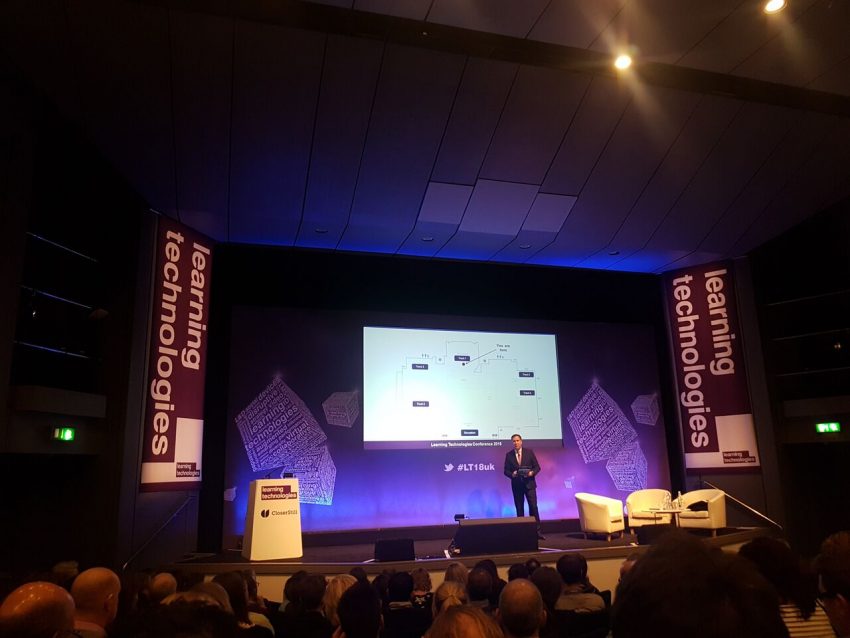Learning Technologies is amongst the largest learning, education and skills exhibitions and conferences in the world and was attended by some of Health Education England’s Technology Enhanced Learning team. The conference ran from 31 January-1 February 2018 at Olympia in London.
Research and Markets estimate that the learning technology industry will be worth an estimated $331 billion (£234 billion) by 2025 so understandably, vendors were keen to impress. The team spoke with a large number of existing suppliers as well as discussing exciting new developments in the learning technology field with new businesses, exploring opportunities to pilot ideas in the health and care sector.
So, what were the trends we saw emerging in learning technology at this year’s conference?
1) The rise of the machines
We have been excited about the opportunities presented by the rise of artificial intelligence (AI) for some time and this year gave us the chance to see some of the realities of this emerging technology. There is no doubt that AI will have an impact on the world we live in but as yet, the impact on education is not clear. For example, an AI could analyse historical learner data and make recommendations and personalise the learning to the individual.
For now, Chatbots (an AI powered support tool) were the talk of the show and exploring their use in the support for learning was a key development of this technology. However, as the technology develops, we will be keeping a close eye on this space to see what opportunities AI presents to support and improve learning outcomes and the provision of patient care.
2) Design thinking
Many of the presentations referred to “design thinking” and improving the user experience by designing great experiences for learners. There was talk of “learning ecosystems” and for design thinking, this means making sure everything is coherent for the learner. As learning and development professionals, we have always tried to make sure learners have a great experience but this year, it felt like the technology has matured sufficiently to realise this approach, integrating the Learning Management System (LMS) with other educational environments and making sure learning content is as good as it can be to support learning.
3) Learner Analytics
The importance of learner analytics was a trend that for the first time made an impact at the conference, with many speakers making reference to it. The impact was evident as many of the sessions on learner analytics were “standing room only”. While educational data standards such as xAPI have as yet failed to make a significant impact in UK and European education (the converse is true in the United States), learning analytics sessions referenced interoperability of learner data, and making better use of the data that is available, so a data standard like xAPI is going to become increasingly important. Similarly, AI will rely on a large, well-formed data set to produce meaningful results, so while this is unlikely to be the year that AI makes significant strides, it is very likely that 2018 will herald the evolution of learner analytics.
4) Augmented, Virtual and Mixed Reality
While augmented reality (AR) and virtual reality (VR) have been around for a number of years, the technology has often been expensive and cumbersome. It was evident from discussions around the exhibition that the technology has now matured sufficiently to make it a viable education delivery modality. The cost has certainly reduced and the equipment required has improved greatly, even providing acceptable results on a simple Google Cardboard viewing headset.
With the NMC (Nursing and Midwifery Council) currently consulting with members on the potential to deliver nearly 50% of undergraduate nurse education through simulation, it makes sense for VR and AR to help provide this.
It is an exciting time for technology enhanced learning and events like Learning Technologies help provide context and ideas on improving the delivery of future healthcare education. You can follow the post-event tweets by following the hashtag #LT18UK
